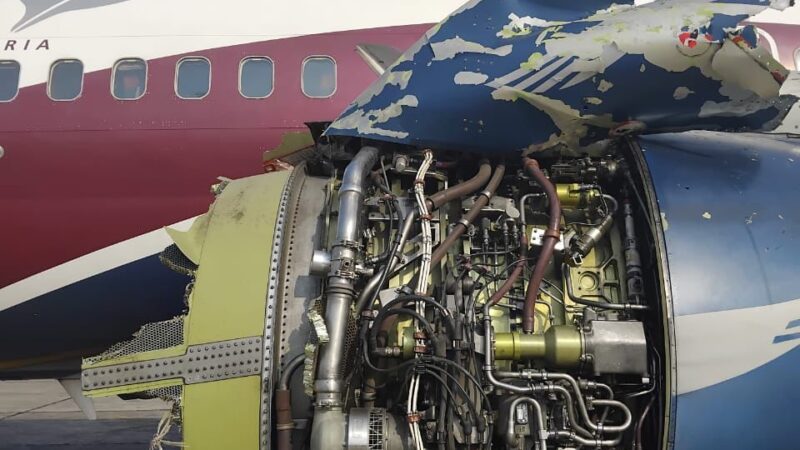Airport certification: Kano, PH, others in process, FAAN assures

The Federal Airports Authority of Nigeria (FAAN) has expressed confidence that other airports in the country will soon be certified by the Nigerian Civil Aviation Authority (NCAA).
Speaking with aviation correspondents in Lagos yesterday, the Managing Director, FAAN, Engr. Saleh Dunoma, said the certification exercise was in phases, and would soon be completed.
It would be recalled that the Nnamdi Azikiwe International Airport, Abuja, and the Murtala Muhammed International Airport, Lagos, have been certified in the first phase of the exercise.
According to Dunoma, other airports currently going through the process of certification by the NCAA were Aminu Kano International Airport, Kano, Port Harcourt International Airport, Akannu Biam International Airport, Enugu, and Kaduna International Airport, Kaduna.
On the second runway project for Abuja Airport, Dunoma disclosed that the project was part of the 2019 budget, hoping that it would scale through the Bureau of Public Procurement (BPP).
“That has gone far. This is a big document here. The document contains the design and everything about the second runway. It’s in our 2019 budget. Actually, the consultancy is being processed. As soon as we get our clearance from the BPP, we will commence work on it. In fact, we have gone far on this,” he said.
Dunoma also disclosed that the Authority has set up a committee to map out plans to boost revenue generation from non-aeronautical sources.
He said it was high time airport authorities in Africa diversified their revenue generations away from aeronautical to non-aeronautical sources, stressing that other airport managers across the world had already keyed into this.
He insisted that the committee, which he chaired, consisted of relevant directorates and departments responsible for revenue generation for FAAN and would come out with a roadmap to enhance revenues for the agency.
He declared that FAAN as an agency could not be left behind in development of its airport infrastructure, stressing that the only way to achieve this was for it to diversify its revenue generation and tap into the myriad of opportunities in the system.
He explained further that apart from Nigeria, other airport authorities across the continent were also deliberating on how to increase their non-aeronautical revenue services, which he said formed the theme of this year’s Airports Council International (ACI) held in Egypt.
“What we intend to do is to diversify our revenue sources. In Africa, we have not tapped into non-aeronautical sources and we are encouraging African airports to look at non-aeronautical revenue sources of revenue because aeronautical sources of revenues have limitations; they are highly dependent on flight operations.
“The non-aeronautical revenues are being developed so much that they can be in pari-passu with the aeronautical sources of revenues. This is what we want African airports to develop. Some papers were presented to guide African airports to develop that area.
“As a matter of fact, I just finished a meeting with my team. I set up a team on revenue generation and this team is chaired by me. It is very sensitive to the survival of African airports especially FAAN. We started the meeting today (yesterday) and we will continue to meet every week until we get to where we want to be.
“We have not come up with a target yet, but the committee will come up with that. There are lots of departments involved, including engineering and commercial. By the time we develop some projects, we will have revenue targets that we want to achieved. This will be done by the committee,” said Dunoma.
On AVSEC bearing arms, Dunoma said the Authority was going through some processes that would eventually lead to the approval of its Aviation Security (AVSEC) to bear arms in 2019.
He explained further that before the end of the year, AVSEC personnel would have been approved to bear arms in order to increase their surveillance of the sector.
He, however, said that before this could be achieved, the department required some trainings and approvals especially from the National Security Adviser (NSA), stressing that background checks would also be carried out on some of the personnel before the approval.
“There are certain projects that we need to implement before we can start carrying arms. Number one, we have to get the arms. Number two, we have to store the ammunitions somewhere. We need to embark on projects that will enable us to have storage somewhere at the airport. Number three, we need to profile and train.
“It is not everybody that will bear arms. This, we must apply. We cannot train ourselves. We have to be trained by those that have been long in the system; the State Security Service and the Nigeria police. Also, we want to make sure that we get certification from the office of the National Security Adviser. We have to go through these processes. As soon as we are through with all these, they can then be allowed to carry arms. We intend to do this before the end of the year,” he said.







